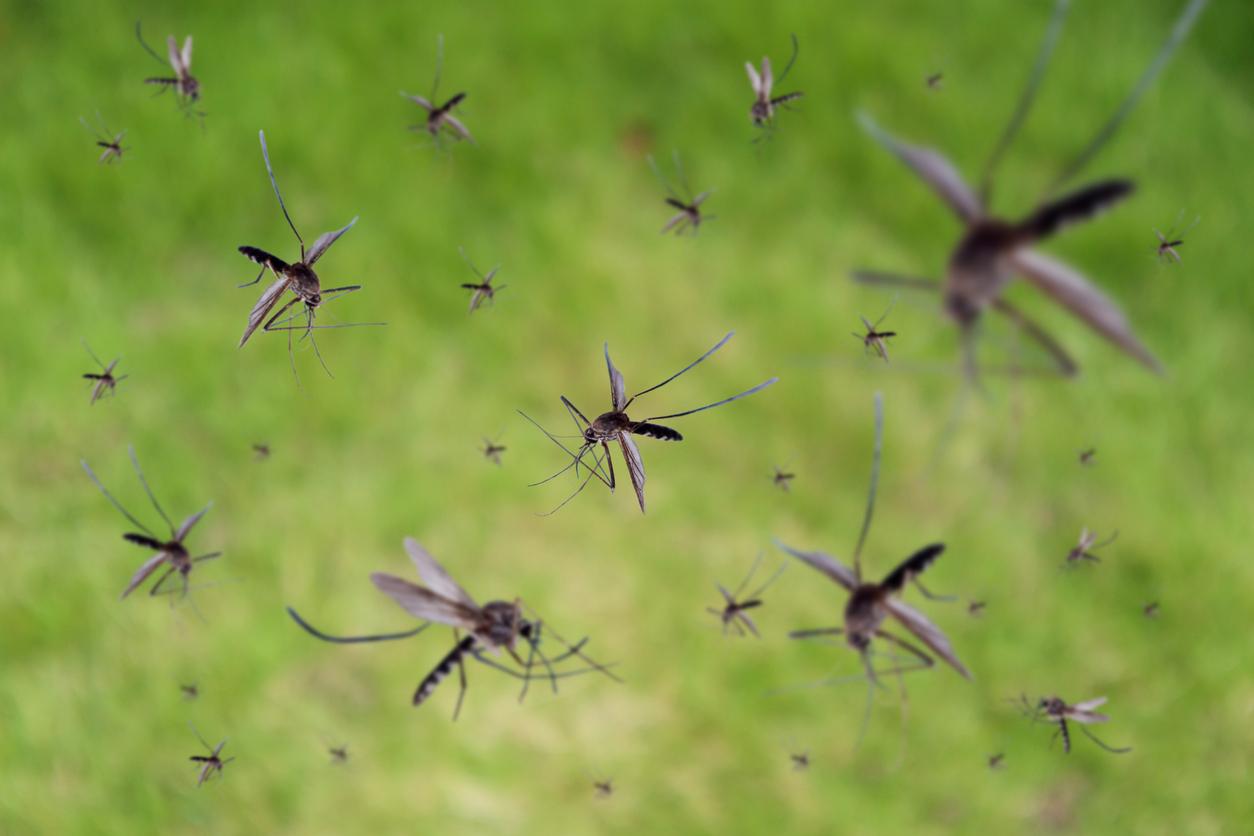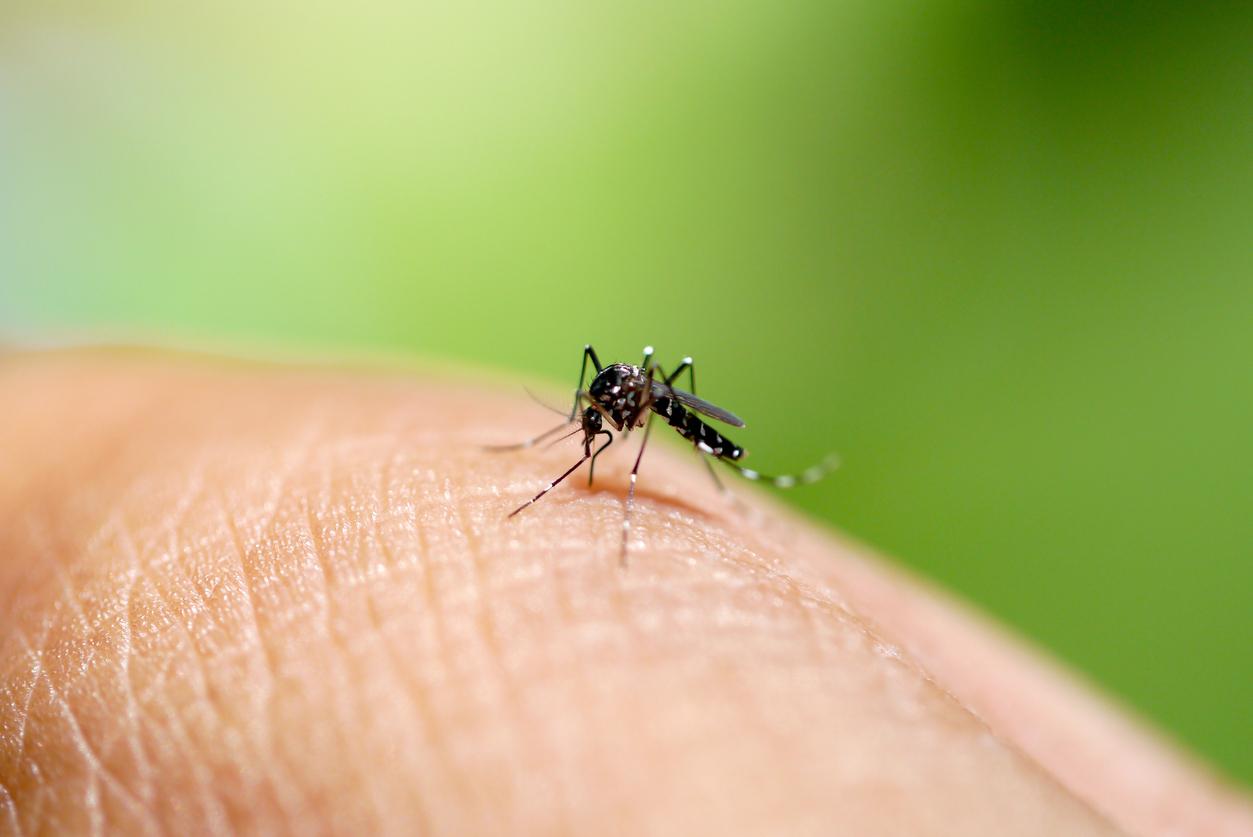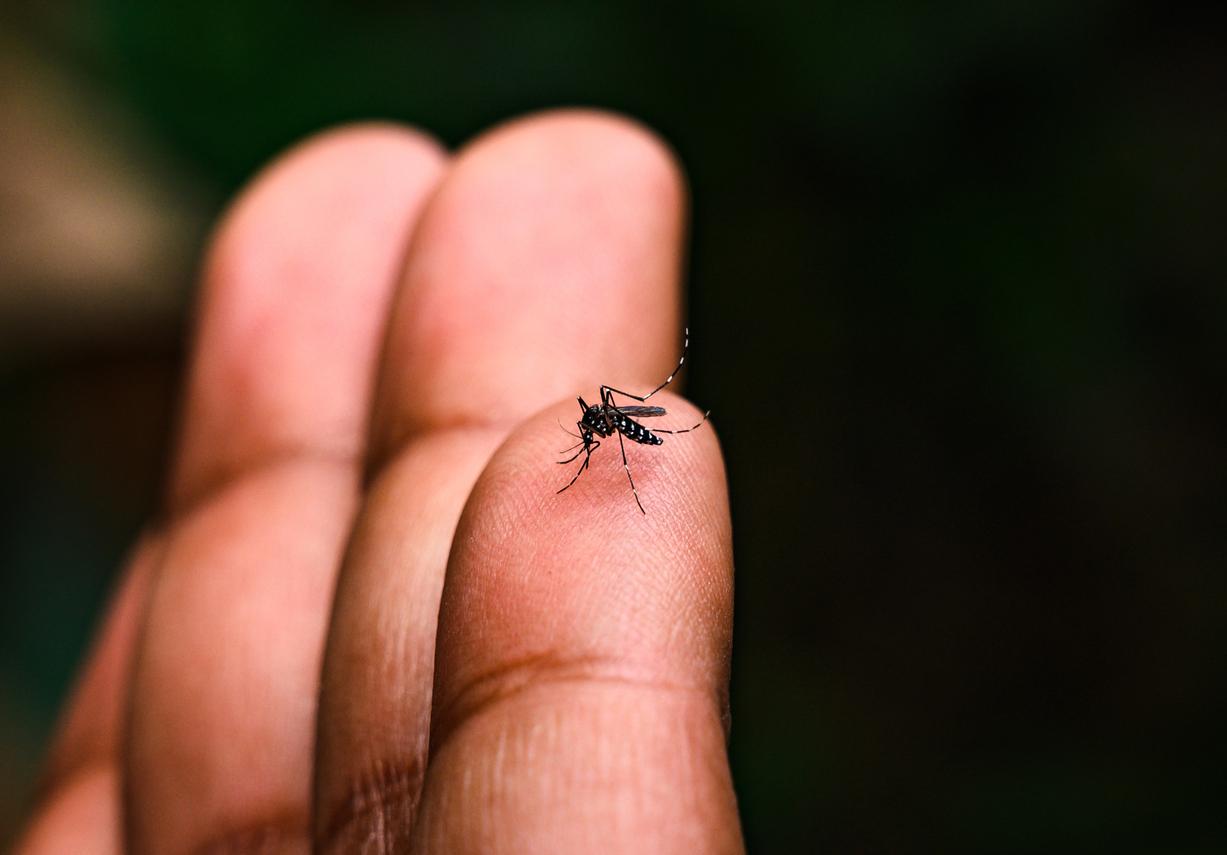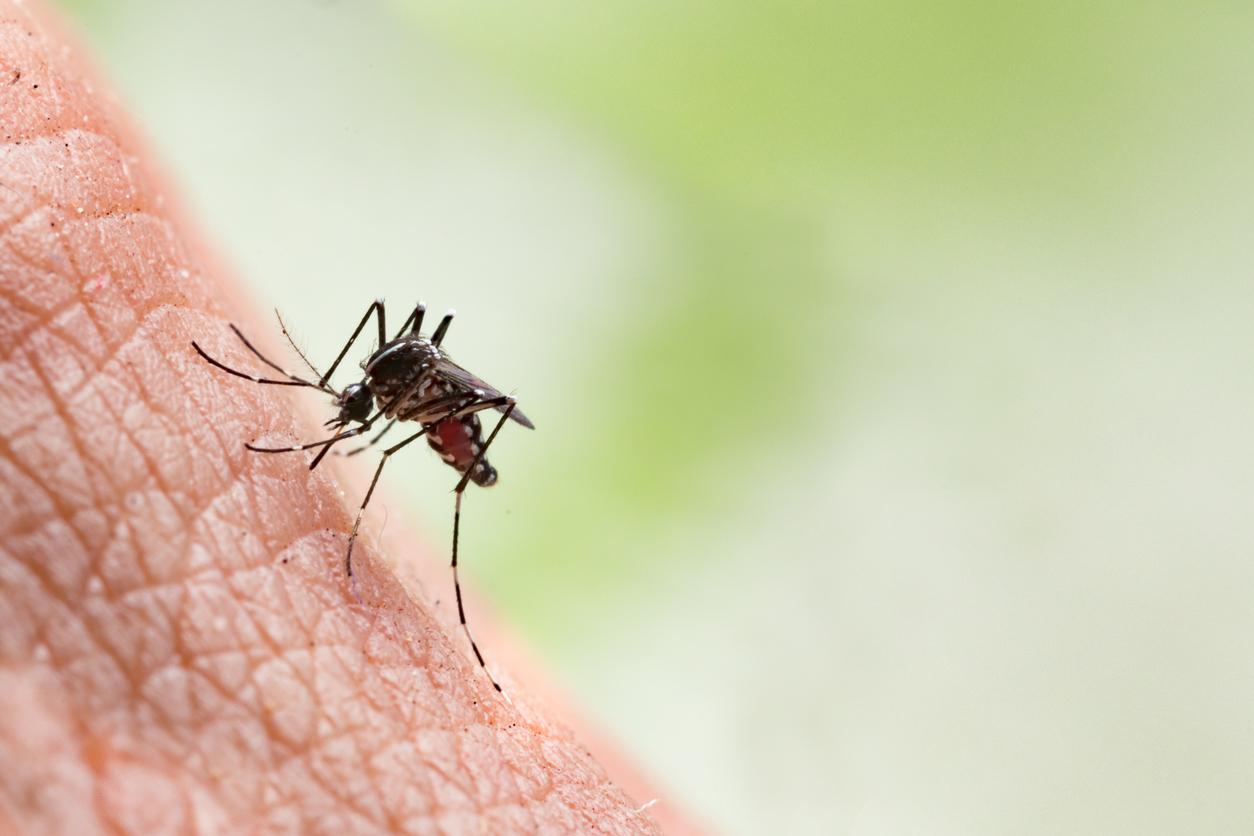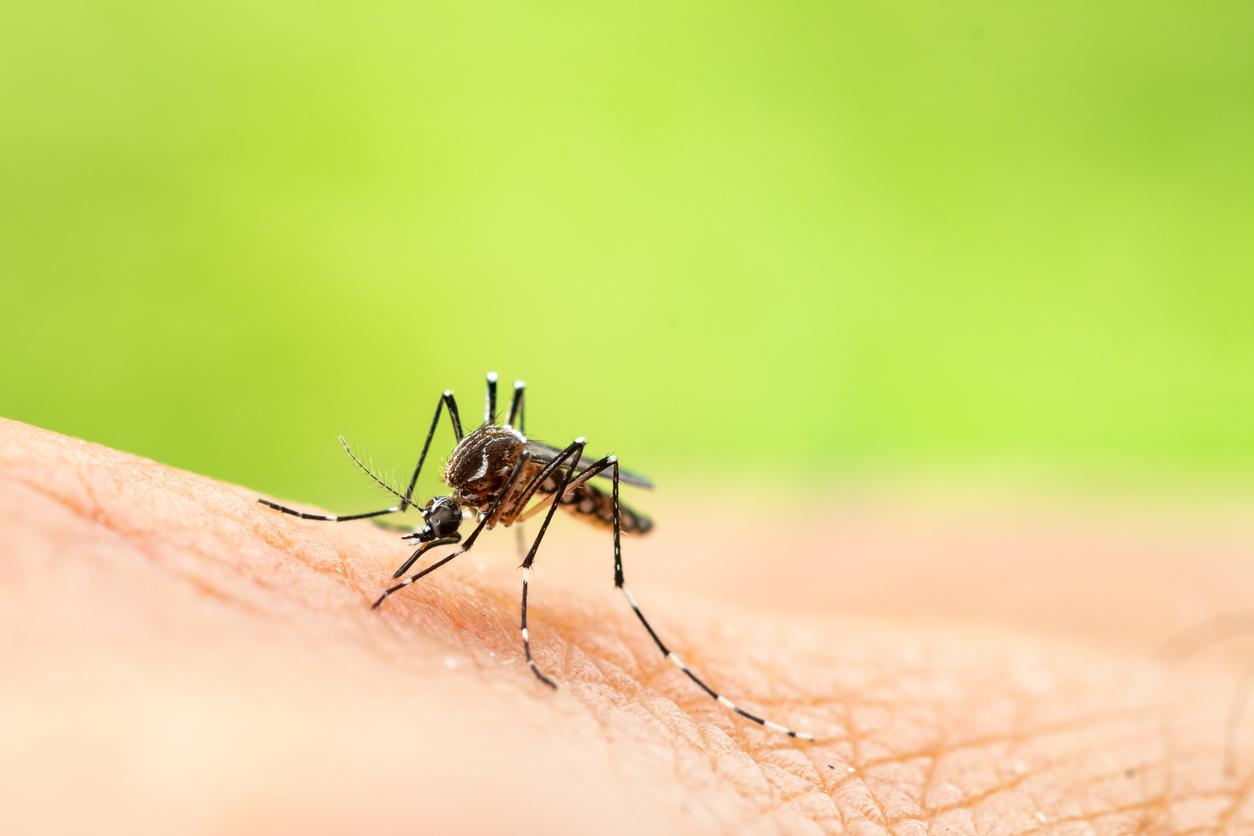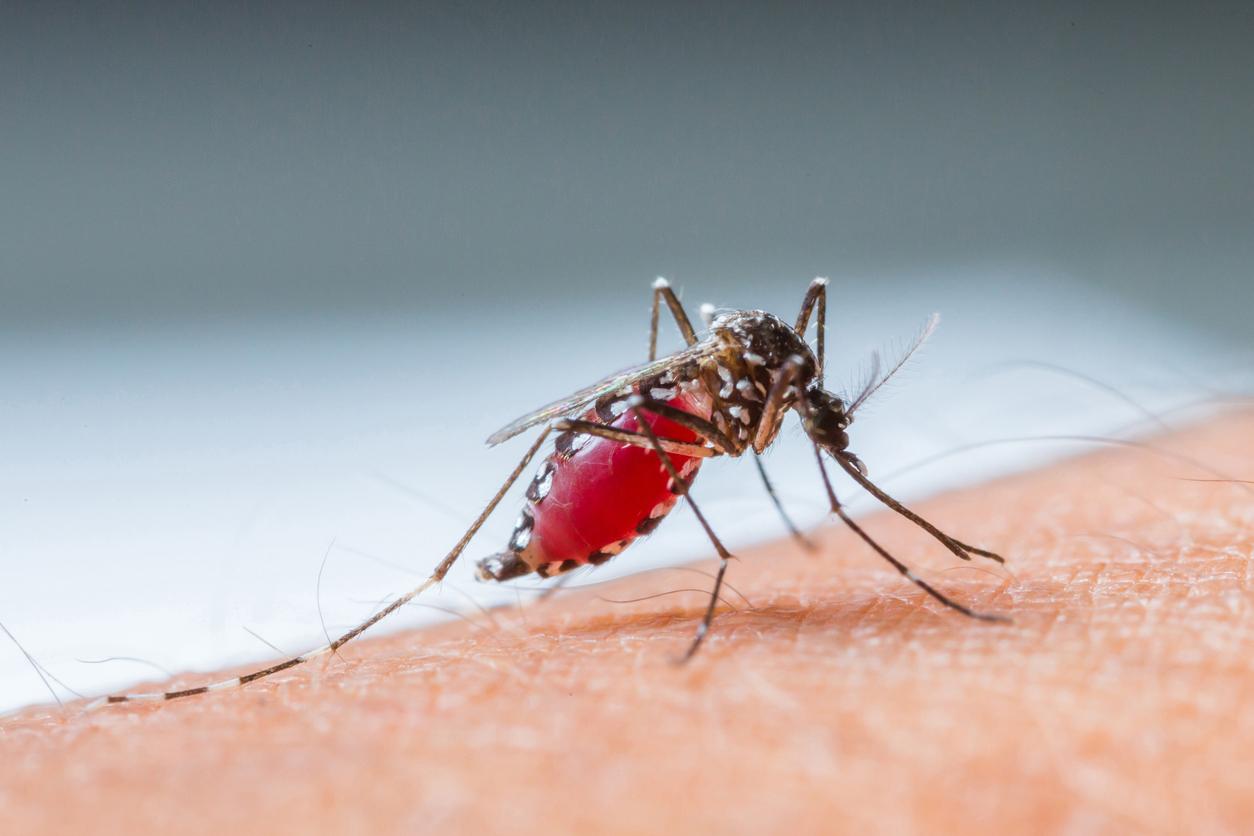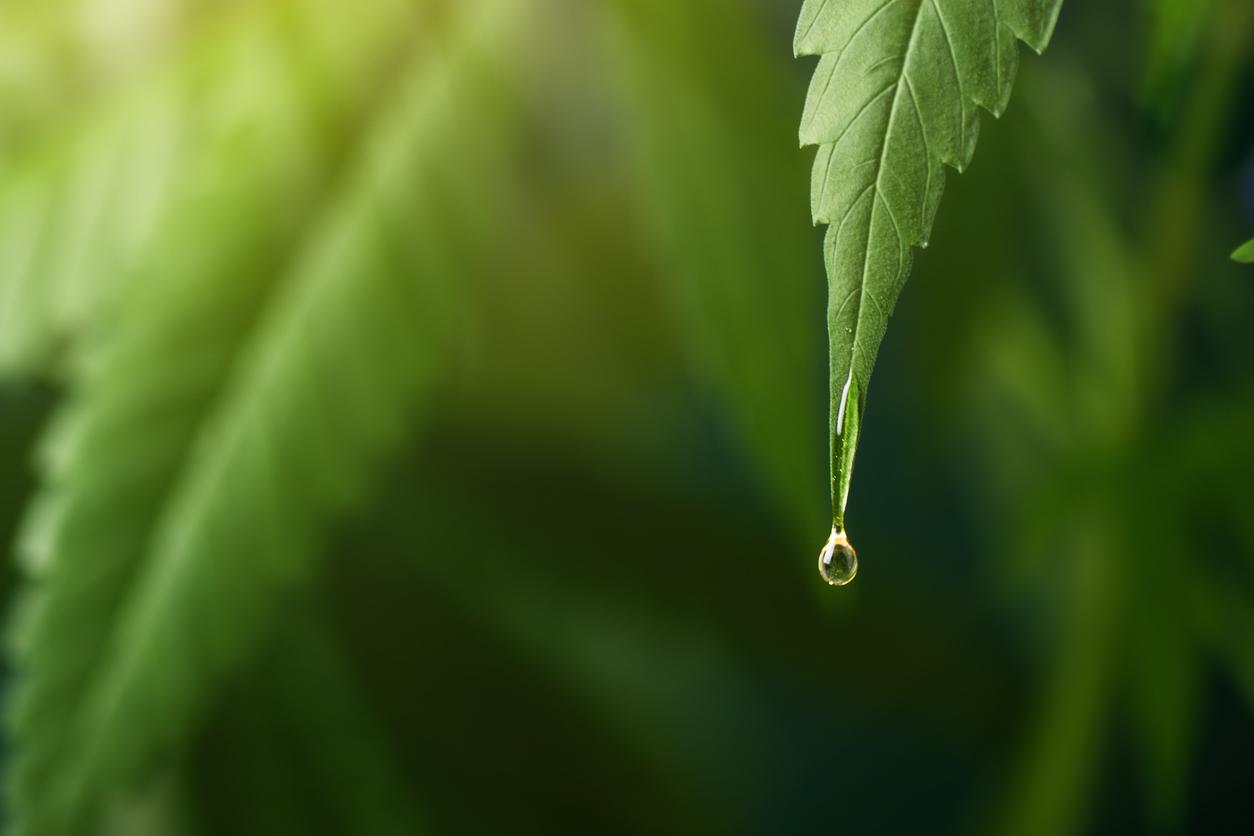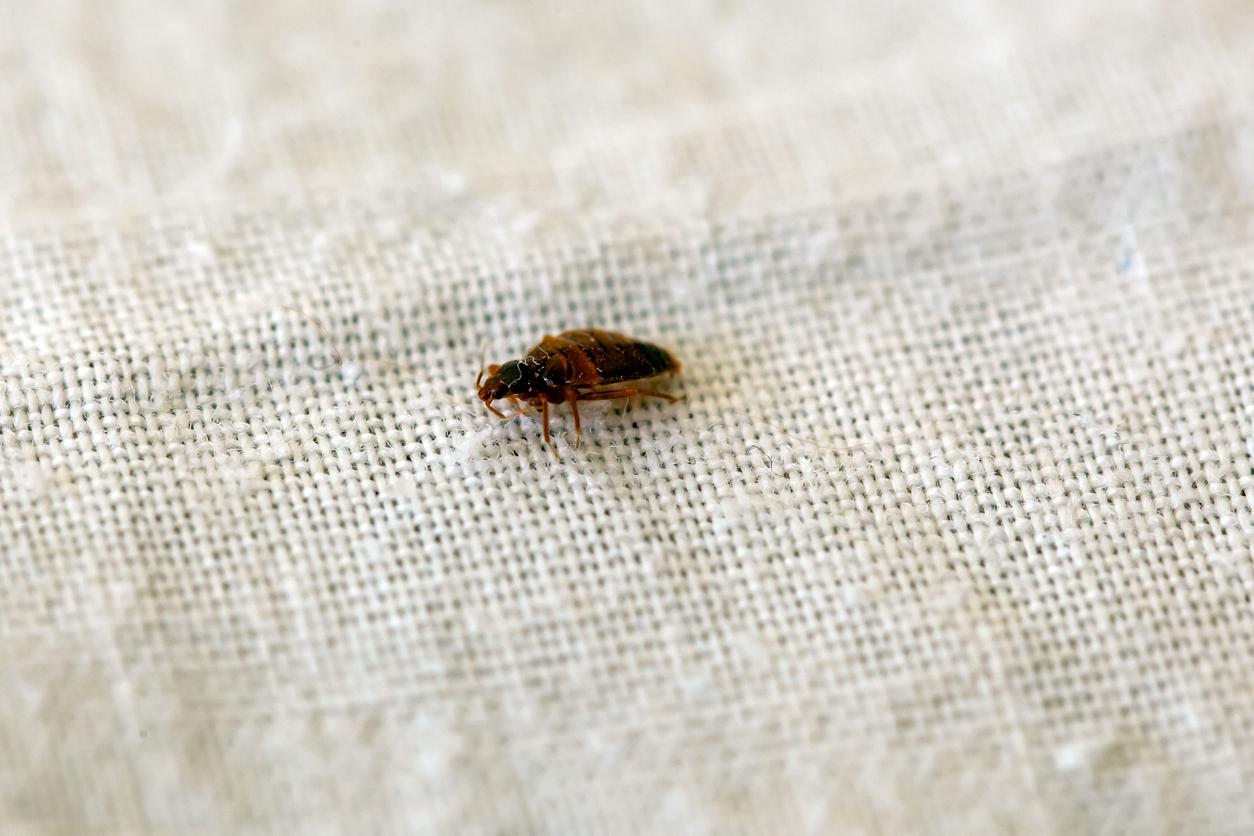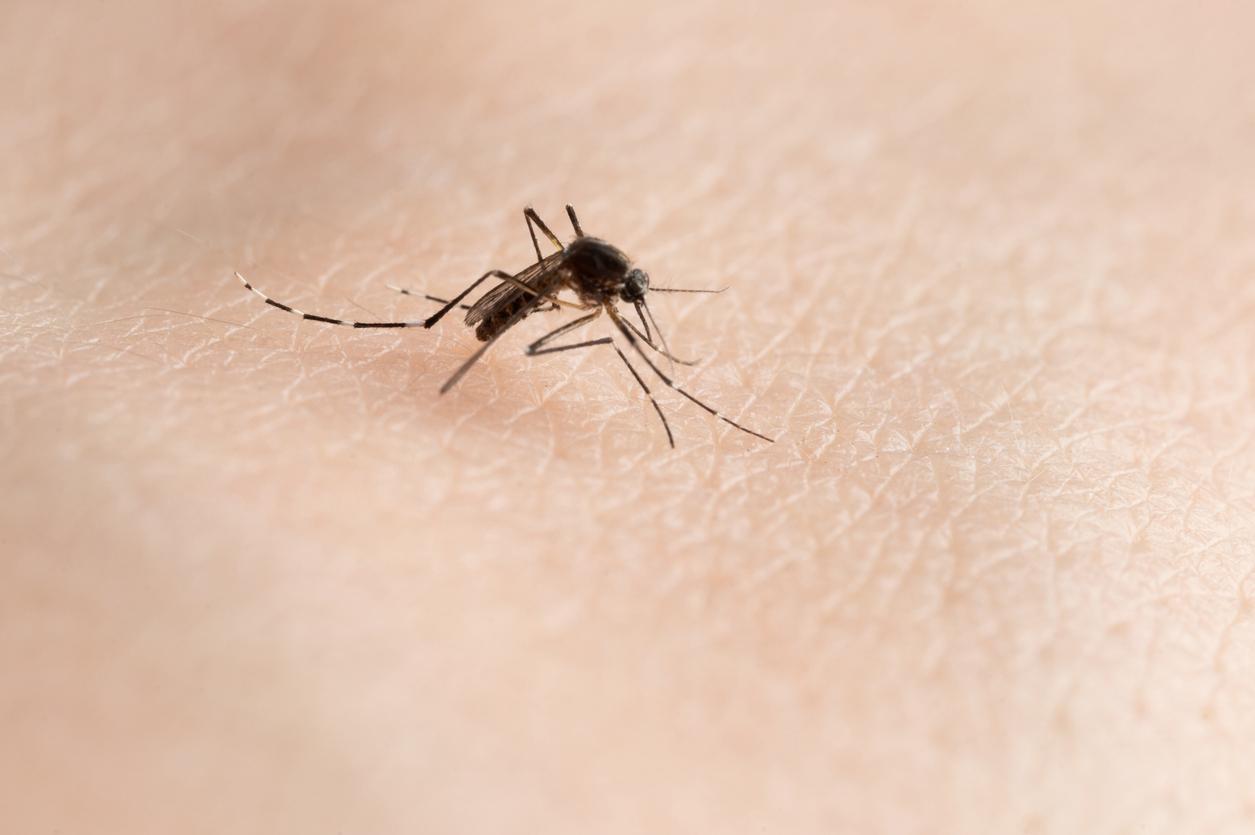Japanese researchers have created an alternative to mosquito repellent insecticides: a spray with a surfactant, a substance that wets insects and prevents them from flying.
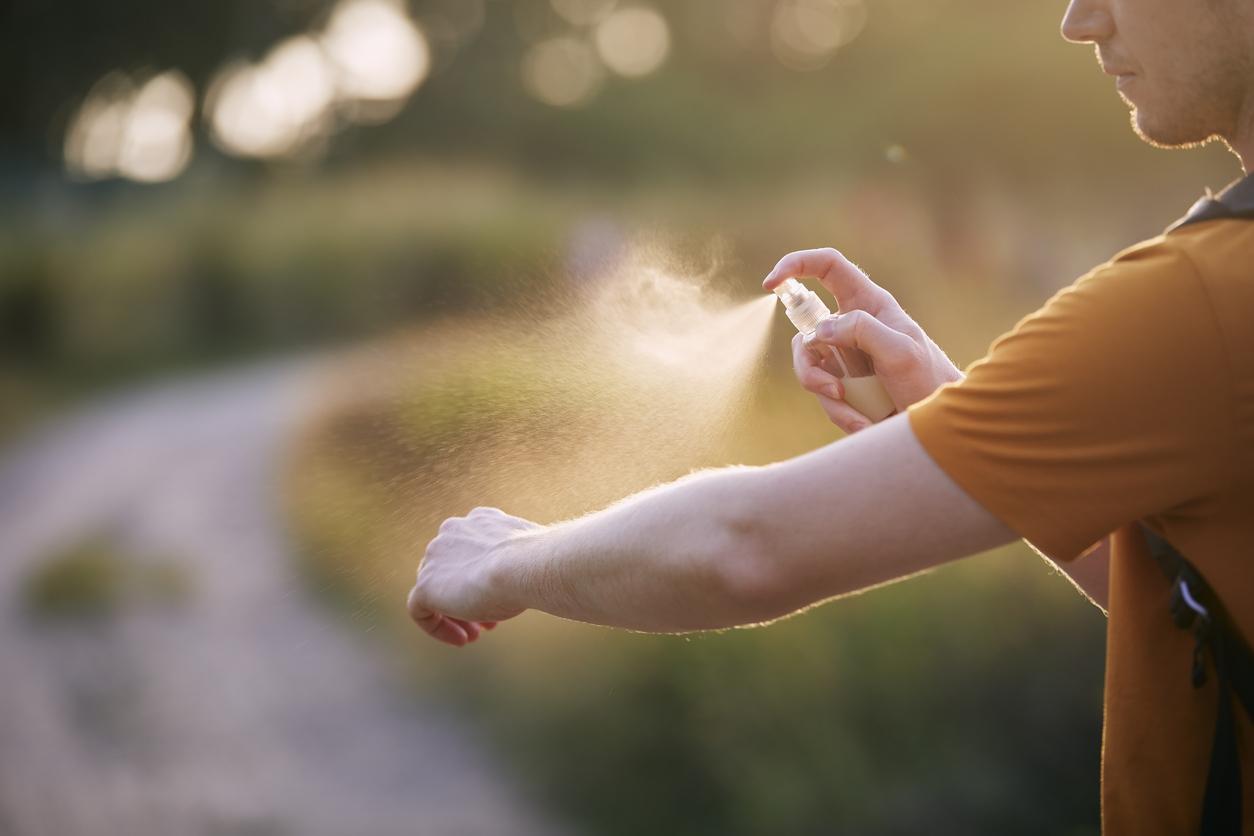
- Mosquito repellent products can be dangerous for the environment because of the insecticides they contain.
- Some have become ineffective because insects have developed resistance.
- Japanese researchers have created a spray, without insecticide, that prevents mosquitoes from flying and makes them fall on their backs.
The presence of the tiger mosquito is increasing in France. There are more and more requests for mosquito control to combat this insect. In Ile-de-France, theRegional health agency conducted two operations this week after imported cases of dengue fever. They consist of “spray approved insecticide products which also have the advantage of degrading quickly”, specifies the organization. However, these products can be dangerous for the environment and some mosquitoes become resistant to them. To counter these effects, Japanese researchers are working on a new form of mosquito repellent: a spray, without insecticide, which prevents them from flying. Their discovery is presented in the journal Scientific Reports.
Mosquitoes: it is necessary to find new ways to eradicate them
““Eradicating mosquitoes is an effective way to reduce the spread of transmitted diseases.”, remind the authors in the preamble. Apart from dengue fever, the mosquito is also a vector of malaria, the Zika virus and chikungunya. “Mosquitoes in Southeast Asia and elsewhere are known to develop resistance to pyrethroids, meaning fewer mosquitoes are killed by insecticidesobserve these scientists. This highlights the need to develop various mosquito eradication mechanisms that can be used sustainably.”
These scientists carried out this study for the Kao group, a Japanese chemicals and cosmetics company. Their strategy for fighting mosquitoes is based on one idea: preventing them from flying. “The surface of the mosquito’s body is covered with very fine ridges and covered with a substance hydrophobic, wax-like”, they explain. This means that water cannot wet them. In 2020, first tests showed that wetting the wings of insects could disrupt their flight. For this, it is necessary to use products called surfactants or surfactants, which “act at the interface of two different substances and have the capacity to modify their properties. “For example, when a surfactant acts at the interface of water and oil, it allows oil and water to mix, which would not normally be possible.”indicate the authors.
How does water get rid of mosquitoes?
This technique wets mosquitoes and thus prevents them from flying. But for this their entire body must be wet, because their wings are capable of repelling water. Conversely, when the insect is completely wet, it falls on its back. This blocks its stigmata, small openings that allow it to breathe. For the authors, this dual mosquito control strategy could become a lasting solution. “It is expected that they will not easily develop resistance to the physical mechanism of wetting their bodies which actually causes their death.”they estimate. In a communicatedthe company says it wants to put this “technology in practice” to help protect people from diseases caused by mosquitoes.










